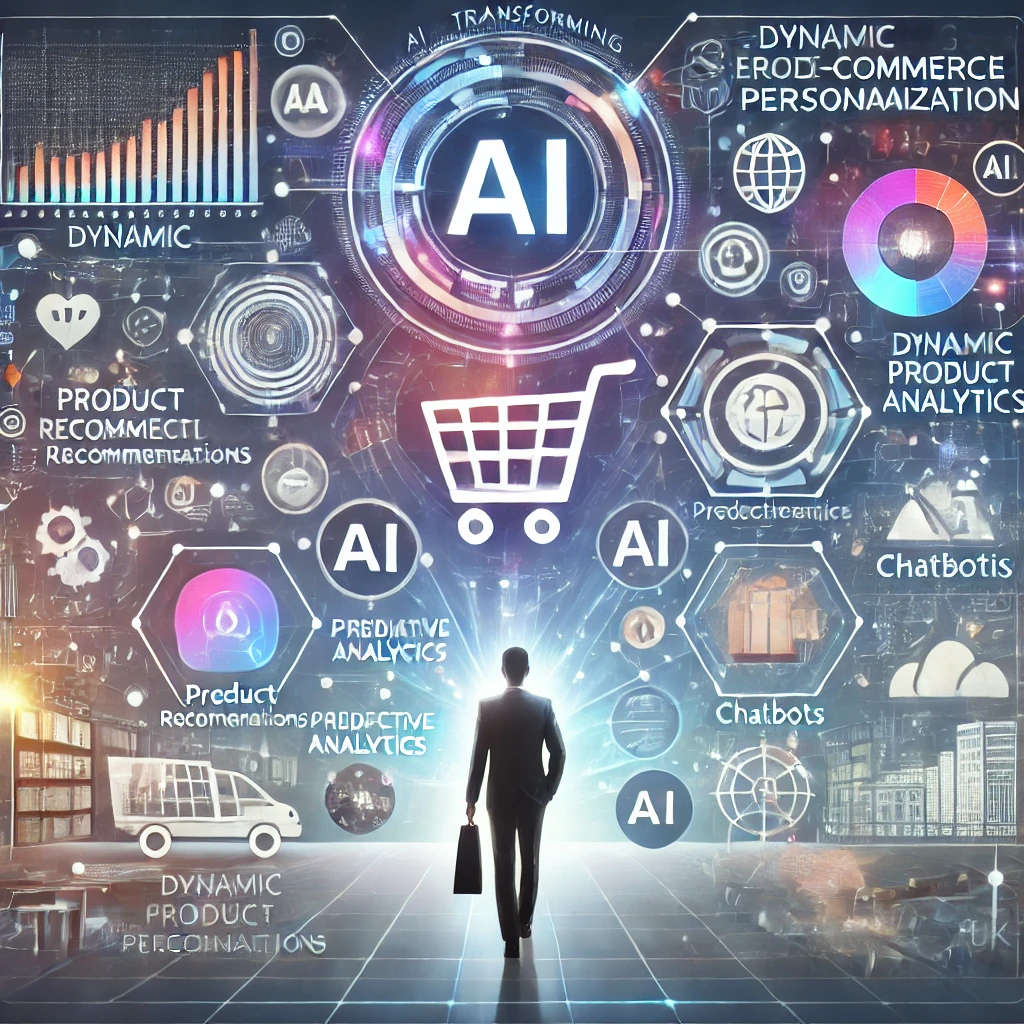In the fast-evolving world of e-commerce, delivering a tailored shopping experience is no longer a luxury—it’s a necessity. Artificial Intelligence (AI) has revolutionized personalization, allowing businesses to create hyper-targeted customer journeys that boost engagement, sales, and loyalty. This blog dives deep into how AI is reshaping the landscape of e-commerce personalization and how businesses can harness its power to thrive in a competitive market.
Why E-commerce Personalization Matters
Personalization in e-commerce isn’t just about addressing customers by their first names in emails. It’s about understanding their preferences, behaviors, and needs to offer them products, content, and experiences they truly value. According to a McKinsey report, businesses that excel at personalization drive 40% more revenue than their peers. In markets like the USA, Canada, Australia, and the UK, where competition is fierce, personalization can make or break a business.
How AI Powers Personalization in E-commerce
1. AI-Driven Product Recommendations
AI uses machine learning (ML) to analyze vast amounts of data, including customer browsing history, purchase patterns, and preferences. For instance:
- Amazon employs AI algorithms to recommend products based on customer behavior, contributing to 35% of its total revenue.
- Tools like Dynamic Yield and Segmentify offer e-commerce businesses the capability to deliver real-time product recommendations.
2. Predictive Analytics
Predictive analytics powered by AI enables businesses to anticipate customer needs even before they arise. By analyzing historical data, AI can predict:
- What products a customer might purchase next.
- When a customer is likely to make their next purchase. Suggested Tools:
- Google Cloud AI
- HubSpot Predictive Lead Scoring
3. Personalized Chatbots
AI-powered chatbots enhance customer support by providing personalized assistance. Chatbots like Drift and Tidio can:
- Understand customer queries using Natural Language Processing (NLP).
- Provide tailored product suggestions during live interactions. According to Juniper Research, AI chatbots will save e-commerce companies $11 billion annually by 2025.
4. Dynamic Pricing
AI dynamically adjusts pricing based on demand, customer behavior, and competitor pricing. This ensures:
- Optimal pricing strategies.
- Increased sales without sacrificing profit margins. Suggested Tools:
- Prisync
- Intelligence Node
5. Visual Search
With AI-driven visual search, customers can upload images to find similar products. This feature is particularly popular in fashion and home décor industries. Pinterest Lens is a prime example, and tools like Syte can integrate this technology into your store.
6. Hyper-Personalized Emails
AI can craft personalized email campaigns by segmenting audiences and analyzing customer preferences. For example:
- Suggesting products based on abandoned carts.
- Sending reminders for restocks of favorite items. Suggested Tools:
- Mailchimp with AI integrations
- Klaviyo
7. Voice Search Optimization
With devices like Alexa and Google Home gaining traction, optimizing for AI-driven voice search is critical. AI helps predict and suggest products based on voice queries.
Steps to Implement AI for E-commerce Personalization
Step 1: Leverage Data Collection
Invest in tools like Google Analytics 4 and Hotjar to gather customer insights. AI thrives on data; the more quality data you feed it, the better its predictions and recommendations.
Step 2: Choose the Right AI Tools
For businesses in the USA, Canada, Australia, and the UK, leading AI tools include:
- Shopify’s AI features
- BigCommerce AI integrations
- Zoho CRM with AI
Step 3: Prioritize Customer Privacy
With regulations like GDPR in the UK and CCPA in California, ensuring data privacy is non-negotiable. Use tools like OneTrust to maintain compliance.
Step 4: Measure and Optimize
Regularly evaluate the performance of AI solutions using analytics platforms like Mixpanel. Track metrics like customer engagement, conversion rates, and average order value.
The Future of AI in E-commerce Personalization
The future lies in conversational commerce, where AI-powered virtual assistants provide a seamless shopping experience. With advances in technologies like augmented reality (AR) and AI, the boundaries between physical and digital shopping will blur.




